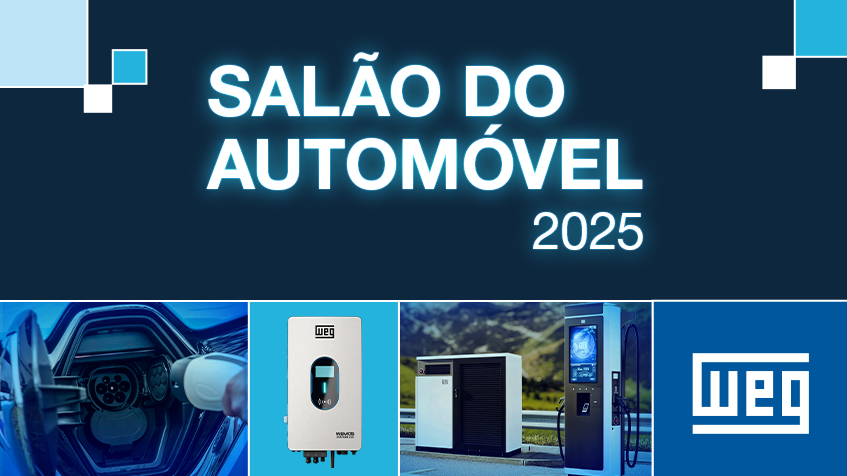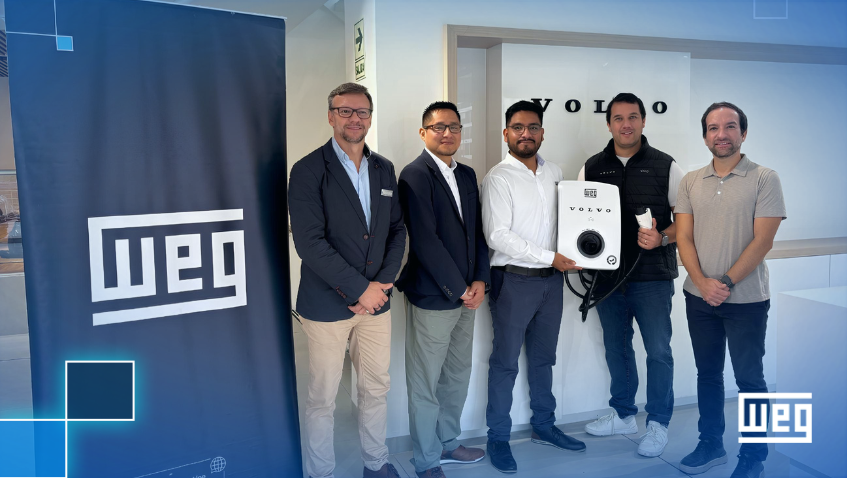WEG has recently signed the contract to become the exclusive supplier of charging stations for Neoenergia's electric vehicles.
The partnership scope will include the WEMOB (WEG Electric Mobility) charging stations line, developed and manufactured in Brazil by WEG. All models are supplied with energy meter including open communication protocol, internet connection and recharge management platforms.
As a result of the WEG and Neoenergia partnership, the electric mobility solutions are intended for residential homes, commercial centers and companies that wish to provide charging power for their fleets. WEG´s portfolio is quite extensive and serves several applications, with products of different configurations according to the customer's needs, including technical support and installation which can be requested on the website.
“Our partnership with Neoenergia promotes and encourages projects for recharging electric vehicles and business related to sustainable energy solutions. We not only want to advance our strategy of allowing electric mobility to become a reality in Brazil, but also structurally serve the entire chain required for the implementation of electric vehicles”, says Manfred Peter Johann, WEG Automation Business Unit Managing Director.
As stated by Neoenergia´s Business Director, Hugo Nunes, the partnership with WEG is in line with Company's commitments to sustainable development by encouraging the local production chain and electric mobility, in order to further promote the efficient decarbonization of the economy and minimize environmental impact. “Together with WEG we are offering our contributions to expand national production to generate jobs and financial resources for the country. This is a strategic partnership established with a company that meets technical requirements and counts on an extensive experience and credibility in the market”, says Hugo.
The contract between both companies includes the supply of 7.4 kW Wall WEMOB charging stations. Allowing to be powered by single-phase or two-phase networks (127 or 220V), this model is ideal for residential homes or condominiums.
There are also Parking WEMOB charging stations in the range of 22 kW. These models count on one or two outputs sockets and can recharge two electric vehicles simultaneously. Designed for 220V or 380V three-phase power supply, they are intended for individual or shared use in companies or commercial centers. Both models can operate with a type 2 connector, the most commonly used on the market.
WEG´s Ecosystem of solutions includes, in addition to the charging stations, a management platform to charge or share the consumption of each user, to control the access via proximity cards (RFID tags) and manage a demand control system - WEMOB Smart Charging System - for cases where the power consumed by the stations exceeds the demand contracted at the installation site.
About Neoenergia
Publicly-held company with shares (NEOE3) traded on the São Paulo Stock Exchange. Part of the Spanish group Iberdrola, the company has been operating in Brazil since 1997, and is currently one of the leaders in the country's electricity sector. Present in 18 states and the Federal District, its business is divided into the generation, transmission, distribution and commercialization areas. Its distributors, Neoenergia Coelba (BA), Neoenergia Pernambuco (PE), Neoenergia Cosern (RN), Neoenergia Elektro (SP/MS) and Neoenergia Brasília (DF) serve more than 15 million customers, the equivalent of a population of over 37 million people. Neoenergia holds 4 GW of installed generation capacity, 88% of which from renewable energy, and is implementing another 1 GW with the construction of new wind farms. In the transmission sector, there are 1.4 thousand km of lines in operation and 5300 km under construction. Through the Neoenergia Institute, it fosters sustainable development based on social and environmental actions, thus contributing to improve the quality of life in the communities where the company operates, mainly focused on most vulnerable people, always aiming at sustainable development.



